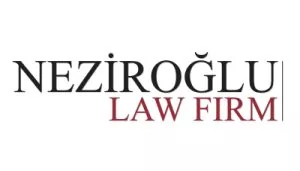Today, due to the intensity of international trade relations and cross-border legal disputes, the need for the protection of international trade laws and their enforcement has increased considerably. Speed and efficient use of time plays a critical role for the parties to a dispute in their decision to choose arbitration as the dispute resolution mechanism, which is a consensual and binding dispute settlement method where its advantages override the disadvantages. This being the case, it is only possible for a foreign arbitral award to bear legal consequences or to be enforceable in Turkey after going through the local recognition and enforcement procedure.
It should be noted that recognition and enforcement are different legal concepts. Recognition is a process where the necessary legal proceedings should be carried out in the State, for the foreign judgment or the arbitral award to be legally binding, endowing final judgement force on the decision independently of the executory effect. Enforcement, on the other hand, is the process were the foreign judgment or arbitral decision gains executory effect through conducting necessary legal proceedings in the State at the local courts. Therefore, the way for a foreign arbitral decision to gain final judgment power or enforceability is through the recognition and enforcement procedure.
Under Turkish law, the recognition and enforcement procedure is regulated under 5718 International Private and Procedure Law ("IPPL"). Based on Article 90 of the Turkish Constitution, in case of a conflict between international agreements and local laws due to a difference in provisions on the same matter, the provisions of the international agreement shall prevail. Also, according to Law No.5718 Article 1, the provisions of international conventions to which the Republic of Turkey is a party shall be reserved. Therefore, the international convention Turkey is a party to (which will primarily be applicable to foreign judgements recognition and enforcement process) is: The New York Arbitration Convention on the Recognition and Enforcement of Foreign Arbitral Awards, New York, 10 June 1958 ("New York Convention").
According to the reservations made by Turkey during the signing and ratification of the New York Convention, reciprocity is essential -meaning Turkey shall only accept recognition and enforcement of arbitral awards by the contracting states. However, considering the fact that today almost every state is a party to this convention, the reservation in question has lost its significance in practice. According to Article 1 of the New York Convention, this convention shall apply to the recognition and enforcement of arbitral awards made in the territory of a State other than the State where the recognition and enforcement of such awards are sought. It shall also apply to arbitral awards not considered domestic in the State where their recognition and enforcement are sought. In other words, New York Convention will be applied to foreign arbitral awards given in another contracting State; while the Law No.5718 will be applicable to foreign arbitral awards given in a non-party State.
It should be underlined that, the prohibition of revision au fond1 is absolute in the recognition and enforcement procedure of foreign arbitral decisions. Therefore, it is important to be mindful of the fact that, courts will be precluded from reviewing the substance of the award rendered by an arbitral tribunal during the process which will be carried out for a foreign arbitral decision to bear legal consequences in Turkey. The prohibition of revision au fond comes as a natural consequence of arbitrations' legal characteristics and the foreign element that the dispute in question involves.
Paramount condition for continuation of the recognition and enforcement process would be for the decision to bear the characteristics of an arbitral award -which will be determined accordingly to the national law of the state where the decision is established.
PROCEDURE for RECOGNITION and ENFORCEMENT of FOREIGN ARBITRAL AWARDS in TURKEY - mostly within the scope of the New York Convention2-
After the determination that the decision is of the nature of an arbitral award according to the national law of the State where the decision is made, it is necessary to file a lawsuit before the Turkish courts for recognition and enforcement -only if the arbitral award satisfies the necessary conditions and/or does not involve any of the legal obstacles for recognition and enforcement.
Recognition and enforcement will accordingly be separately addressed as they are different procedures in the relevant legislation. It should be noted that, since the regulations for recognition procedure are relatively lighter, it is possible to settle for recognition without the need to bring another legal action before the Turkish courts for enforcement in certain instances.
RECOGNITION of FOREIGN ARBITRAL DECISIONS
Under the New York Convention:
The objective of the New York Convention is to facilitate the recognition and enforcement of arbitral awards to the greatest extent possible and to provide the maximum level of control Contracting States may exert over arbitral awards. In accordance with this objective, the Convention grants courts of the Contracting States the discretion to refuse to recognize and enforce an award on the grounds listed in article V, without obligating them to do so.3
Recognition alone will be sufficient in cases where foreign arbitral awards will be used only as a basis for conclusive evidence effect or final judgment objections. Even though there is no special regulation for "recognition" in the text of the New York Convention, it is regulated together with the process of enforcement under the heading "Recognition and Enforcement of Foreign Arbitral Awards". As a result, recognition of foreign arbitral awards in Turkey shall undergo the necessary conditions stipulated for enforcement.
Under IPPL:
Likewise, the text of IPPL only stipulates enforcement and "recognition" is not regulated separately. Thus, it can be emphasized that there are no major procedural differences between the two. Consequently, an arbitral award is ought to meet the conditions stipulated for enforcement for it to be recognized. For a foreign arbitral award to be recognized, parties to the dispute shall bring an action before the Turkish courts.
ENFORCEMENT of FOREIGN ARBITRAL AWARDS:
For a foreign arbitral award to be recognized or enforceable in Turkey, both the arbitral award and the arbitral proceedings are required to meet the conditions and shall not contain grounds for challenge under the IPPL and/or the New York Convention.
Under the New York Convention:
Enforcement of foreign arbitral awards may be refused by the arbitrators' when grounds for refusal exist under Article 5 of the Convention. The Court may also decide partial enforcement of the arbitral award or may recognize the arbitral award to be entirely eligible for enforcement4.
Procedure is stipulated through taking an action before the Turkish courts and the applicable law shall be the national law of the place where the recognition and enforcement will take place. It is self-evident that this regulation (to choose the law of the place where the arbitral award will be enforceable or constitute a final judgment as applicable law) is in line with the purpose of recognition and enforcement procedure, as it will be a favorable practice in terms of the nature and predictability of the matter.
GROUNDS FOR REFUSAL TO ENFORCE FOREIGN ARBITRAL DECISIONS: What are the grounds on which a foreign arbitral award can be challenged?
Article V of the New York Convention and Article 62 of the IPPL sets forth the grounds for refusal to enforce foreign arbitral decisions.
While there are some matters that will constitute grounds for refusal during the trial, which the competent court shall ascertain ex officio; there are also certain instances that the defendant should claim and prove in order to be evaluated as a reason for refusal of the demand. In this respect, it would be appropriate to conduct a two-way assessment.
1. Grounds for Refusal That Need to be Proven by the Defendant During the Proceedings:
The defendant asserting a claim is expected to act in accordance with the good faith rule at all times. Article V of the New York Convention prescribes grounds that need to be proven by a party to successfully resist enforcement of the award. It provides that enforcement of the award may be refused if:
1.1 Lack of Valid Arbitration Agreement:
Claims reliant on the invalidity of the arbitration agreement may be based on but not limited to matters as; the existence, content, written form requirement, legal incapacity, and unauthorized representation issues. It should be stated that, the parties are required to clearly state the arbitral board of their choice in the arbitration agreement. In cases where not specified, the Supreme Court shall give a ruling whether the arbitral decision is enforceable or not.5
Notably, New York Convention contains a conflict of law rule, which states that the law governing the validity of an arbitration clause should be the law chosen by the parties. The parties' choice of law applicable to their arbitration agreement may be express or implied. Absent a parties' choice, the applicable law shall be that of the arbitral seat6.
It is of great importance to take Supreme Courts well established case law into consideration if an arbitration clause is present rather than an arbitration agreement. It should be underlined that the Supreme Court does not accept invalidity claims of the arbitration agreement which are brought forward during the enforcement proceedings without any allegation during the arbitration process, since it considers the allegations of invalidity to be as contrary to the rule of good faith. However, under the New York Convention, the enforcement court is empowered to undertake an independent analysis of the validity of the arbitration clause.7
1.2. Issues Regarding the Arbitrator/Arbitral Tribunal:
Claims of irregularity in the composition of the arbitral tribunal may come into question. It is crucial to state who the arbitrators are, how they were appointed, and their addresses should be included in the curriculum vitae.8 It should also be emphasized that, in order to allege irregularity during the appointment of the arbitrator to be asserted post facto, a reservation shall be made at the time of signing curriculum vitae.
The party that claims irregularity during the appointment of the arbitrator and the arbitral tribunal shall and must act in accordance with the rules of good faith. The Supreme Court considers the allegations of irregularity in the appointment of the arbitrator and arbitration committee which are brought forward after keeping silent during the arbitral proceeding, to be incompatible with the rule of good faith.
Likewise, for the arbitrator or the arbitral tribunal to issue an ultra vires arbitral award, which is not covered by the arbitration agreement or which is not in accordance with the claims of the parties, would also constitute a valid ground for refusal for the arbitral award to be enforceable.
If the arbitrator and the arbitral tribunal exceed their authority while issuing an award, and only if that ultra vires part of the award is detachable from the rest, the court may decide on partial enforcement. In other words, the part of the award where the authority is exceeded may be rejected if separable from the part which is subject to the claim of partial enforcement.
1.3. Procedural Unfairness:
The procedural unfairness defense shall be applicable in circumstances where the arbitral procedure is defective due procedural unfairness issues. Irregularities in cross-border arbitral awards contemplated in the relevant provision must be sufficiently serious and pose as a substantive error, in order for them to be considered as a ground for refusal before the State courts. In particular, if it is beyond doubt that the award could not have been different, notwithstanding the irregularity; State Courts do not tend to refuse the requests on easy terms, as per customary practices.
To specify, challenging an arbitral award by claiming procedural unfairness that pose as a substantive error during the legal action pursued to enforce the arbitral award and not during the arbitration proceedings will constitute a contradiction to the good faith rule.
1.4. Violation of Equality of Arms Principle:
Another important ground for refusal appears to be violations of the equality of arms principle. The equality of arms principle is a jurisprudential principle issued by the European Court of Human Rights and is a part of the right to a fair trial written in the (European) Convention for human rights and fundamental freedoms.9 It is about how the right to a fair and public hearing is closely associated with public order.
As there are some matters that will constitute grounds for refusal which the competent court shall ascertain ex officio; there are also certain instances that the defendant should claim and prove in order to be evaluated as a reason for refusal of the demand. In this respect, it would be appropriate to conduct a two-way assessment.
While violation of public order is a ground for refusal that the court will examine ex officio; the violation of the right to a fair hearing -which is closely related to violation of public order, shall be taken into consideration depending upon the request of the defendant of the legal action for the award to be recognized or enforceable.
If the defendant claims and manages to prove that there has been a violation of the equality of arms principle, it would constitute not only a significant challenge but also an important ground for refusal in the way of the arbitral award to be enforceable.
2. Grounds for Refusal that the Competent Court Shall Ascertain Ex Officio During the Proceedings:
There are some matters that will constitute grounds for refusal which the competent court shall ascertain ex officio.
2.1. Non-arbitrability of the Dispute:
A crucial issue that should be considered ex officio during the legal action is whether the dispute subject to arbitration is of the arbitrable nature or not.
Although there is not a uniform standard of non-arbitrable matters internationally, arbitrability is going to be determined according to the lex arbitri principle during the arbitration process; and lex fori during the legal action taken for the foreign arbitral award to be enforceable. In other words, if arbitrability is asserted before the arbitral tribunal, the applicable law shall be that of the arbitral seat. Yet, if arbitrability is asserted during the recognition and enforcement process, the applicable law shall be the place that of the enforcement process.
However, parties are only free to submit their disputes to arbitration as long as these are among the matters the fate of which are under their disposal. Thus, the state law reveals under what conditions jurisdiction of its courts adjudicating can be limited.10 A contrario to this statement, it is self-evident that matters related to public policy are non-arbitrable.
To specify, there is not any international definition of non-arbitrable matters. A matter is considered to be non-arbitrable according to the national law of the state where the recognition and enforcement procedure is being pursued.
In light of all the information stated above, applicable law being the state law where the arbitral award is going to be executed, perfectly fits the purpose of recognition and enforcement process in the means of clarity and predictability. Therefore, for a foreign arbitral award to be recognized and enforceable in Turkey, it is required for the award in question to be of the arbitrable nature with reference to the Turkish law.
However, it is important to underline that there are only a few numbers of cases in which enforcement of an arbitral award has been denied on the ground of non-arbitrability.
2.2. Violation of Public Order:
An important issue that should be considered ex officio during the legal action is whether the public order is violated or not.
It is considered to be an absolute ground for refusal for a foreign arbitral award to be contrary to the public order of the State in which enforcement is sought. At this juncture, which legal order is going to be determinative on the matter of "public policy" raises an important issue.
The notion of public policy varies between the contracting states since it is an ambiguous and fluxional notion. Therefore, the public policy concept adopted in international private law is quite different from the one adopted in domestic law11.
Having all these in mind, the competent court that shall ascertain compliance with public order ex officio, shall also make its determination based on the approach adopted by international commerce. The cases that international trade deemed contrary to public order -including but not limited to- are mostly bribery, money laundering, forgery of official documents, etc. It should be stated that the mandatory legal rules designated by Turkish law should not be a criterion in the assessment of violation of public order.
At this point, the bottom line is, whether enforcement of foreign arbitral award is going to give rise to a result contrary to the public order in Turkey.
Once again, it should be underlined that, the prohibition of revision au fond12 is absolute in recognition and enforcement procedure of foreign arbitral decisions. Therefore, it is against the nature of arbitration to review the merits of the case during recognition and enforcement process. That is because reviewing the substance of the award would mean the State court is competent to deliver a judgment. Yet, it is clear that if the parties wanted a state court to decide upon their case, they would have never resort to arbitration in the first place.
2.3. Nonfulfillment of Reciprocity Principle:
Another issue that should be considered ex officio during the legal action is whether the reciprocity condition is met or not.
The "reciprocity" reservation simply states that a signatory country may choose to only recognize and enforce arbitral awards from arbitrations with other signatory countries or their citizens. It is required for arbitral awards issued in Turkey to be recognizable and enforceable in the State that issued the arbitral award in question.
As aforementioned, the legislations regulating recognition and enforcement procedures for foreign arbitral awards are IPPL and the New York Convention. When it comes to enforcement of an arbitral decision of a non-contracting State, t
Accordingly, the reservations Turkey has on the New York Convention have lost their significance today since almost every State has been a party to this convention. Due to these reasons, even though it is a slight chance for an arbitral award given in a non-contracting State to be recognized or executed, IPPL Article 60 ff. shall still be applicable. Having said that, one should always bear in mind that IPPL also seek for the fulfillment of the reciprocity principle.
** In addition, it is important to underline that; another reservation made by Turkey upon signing the New York Convention was that the scope of this contract shall only be limited to commercial disputes. Therefore, an arbitral award subject to non-commercial disputes will be an absolute ground for refusal.
Recognition and Enforcement Procedure of Foreign Arbitral Awards Thereunder IPPL13:
As highlighted throughout this article, the applicable law may differ according to the court that delivers the judgement for the recognition and enforcement of a foreign arbitral award in Turkey. For the foreign arbitral awards that are to be recognized and executed in Turkey, which do not fall under the scope of the NY Convention, provisions of IPPL are to be applied.
The examination of the foreign element that the arbitral awards the observation that a settled case law has not yet been established and the evaluations carried out can either be in accordance with the principle of territory or procedural basis.
In line with the NY Convention Article V, grounds for refusal preventing the enforcement of foreign arbitral awards are regulated under IPPL Articles 60-62. When a comparative analysis is provided in terms of both legislations, it is apparent that both involve similar regulations. Differences emerge, including but not limited to matters related to the burden of proof, differences on grounds for refusal generating from the wording, principle of reciprocity and the finalization of the arbitral decisions.
LEGAL CONSEQUENCES of the RECOGNITION & ENFORCEMENT PROCESS and DECISION:
The court may dismiss or uphold the case filed for recognition and enforcement of a foreign arbitral award. If the court upholds the decision, the foreign arbitral award will bear legal consequences and will be enforceable in Turkey. However in some instances, the Court may also decide on partial enforcement of the arbitral awards. If the latter is at issue, the separable part of the ruling will be subject to recognition or enforcement in Turkey.
On the other hand, if the court dismisses the suit and refuses the enforcement of an arbitral award, the concerned award will not be subject to recognition or enforcement in Turkey. Provided that, if the State court dismisses the suit based on the grounds for refusal, this will pose an obstacle for the award to bear legal consequences, have res judicata and conclusive evidence effect.
It is important to be mindful of the fact that, these rulings can be subject to appeal. If the decision is appealed, execution of the decision will be suspended. Then again, in accordance with procedural law, the decision shall be finalized in order for it to be subject to appeal.
Footnotes
1. the prohibition of revision au fond is a general principle in international arbitration which precludes courts (first instance and/or supreme court) from reviewing the substance/merits of the award rendered by an arbitral tribunal.
.2 This article hereby has been prepared mainly within the framework of Recognition and Enforcement of Foreign Arbitral Awards under the scope of the regulations of New York Convention. It should be noted that The Recognition and Enforcement of Foreign Arbitral Awards in accordance with the Law No.5718 will be briefly mentioned, and please find detailed information from: Akinci Ziya, (2020) International Arbitration, p. 560-572
3. ALBERT JAN VAN DEN BERG, THE NEW YORK ARBITRATION CONVENTION OF 1958: TOWARDS A UNIFORM JUDICIAL INTERPRETATION 265 (1981); GARY B. BORN, INTERNATIONAL COMMERCIAL ARBITRATION 3428-33 (2014); Teresa Cheng, Celebrating the Fiftieth Anniversary of the New York Convention, in 50 YEARS OF THE NEW YORK CONVENTION: ICCA INTERNATIONAL ARBITRATION CONFERENCE 679, 680 (A.J. van den Berg, ed., 2009).
4. https://www.hg.org/legal-articles/enforcement-procedure-of-arbitral-awards-in-turkey-7720
5. Akinci Ziya, (2020) International Arbitration, p. 487. For detailed information on this topic, please see: p 487
7. Petit, Sherina, Kajkowska Ewelina, Recognition and Enforcement of International Arbitral Awards
8. Curriculum vitae can either be compulsory or voluntary according to the authorized arbitration institution. All the information about the arbitrators stating who they are should be included in the document in written form. It shall be signed by both the arbitrators and the parties. The Supreme Court is of the opinion that the curriculum vitae have an amending / complementary effect on the arbitration agreement. Upon signature, the parties' claims that the arbitral tribunal has not been formed properly will not be accepted unless they make a reservation.
9. Toma, Elisa, The Principle of Equality of Arms - Part of the Right to a Fair Trial, available online at http://www.internationallawreview.eu/fisiere/pdf/06-Elisa-Toma.pdf
10. Özmumcu, Seda, The Principle of Separability and Competence - Competence in Turkish Civil Procedure Code No. 6100
11. Translated and cited from; Demir Gökyayla Cemile, p. 23
12. the prohibition of revision au fond is a general principle in international arbitration which precludes courts (first instance and/or supreme court) from reviewing the substance/merits of the award rendered by an arbitral tribunal.
13. This article has been prepared mainly within the framework of Recognition and Enforcement of Foreign Arbitral Awards under the NY Convention. The Recognition and Enforcement of Foreign Arbitral Awards in accordance with IPPL will be briefly mentioned, and for detailed information please see: Akinci Ziya, (2020) International Arbitration, p. 560-572
The content of this article is intended to provide a general guide to the subject matter. Specialist advice should be sought about your specific circumstances.



